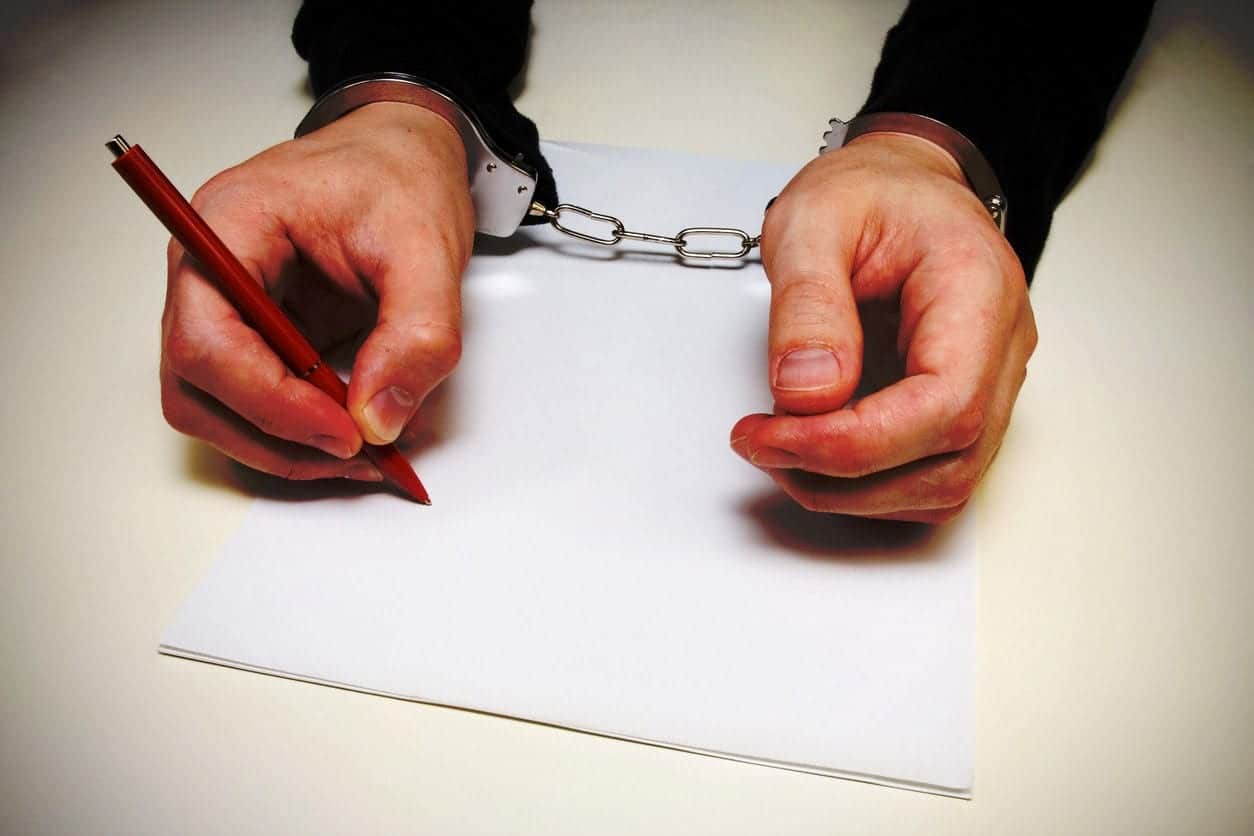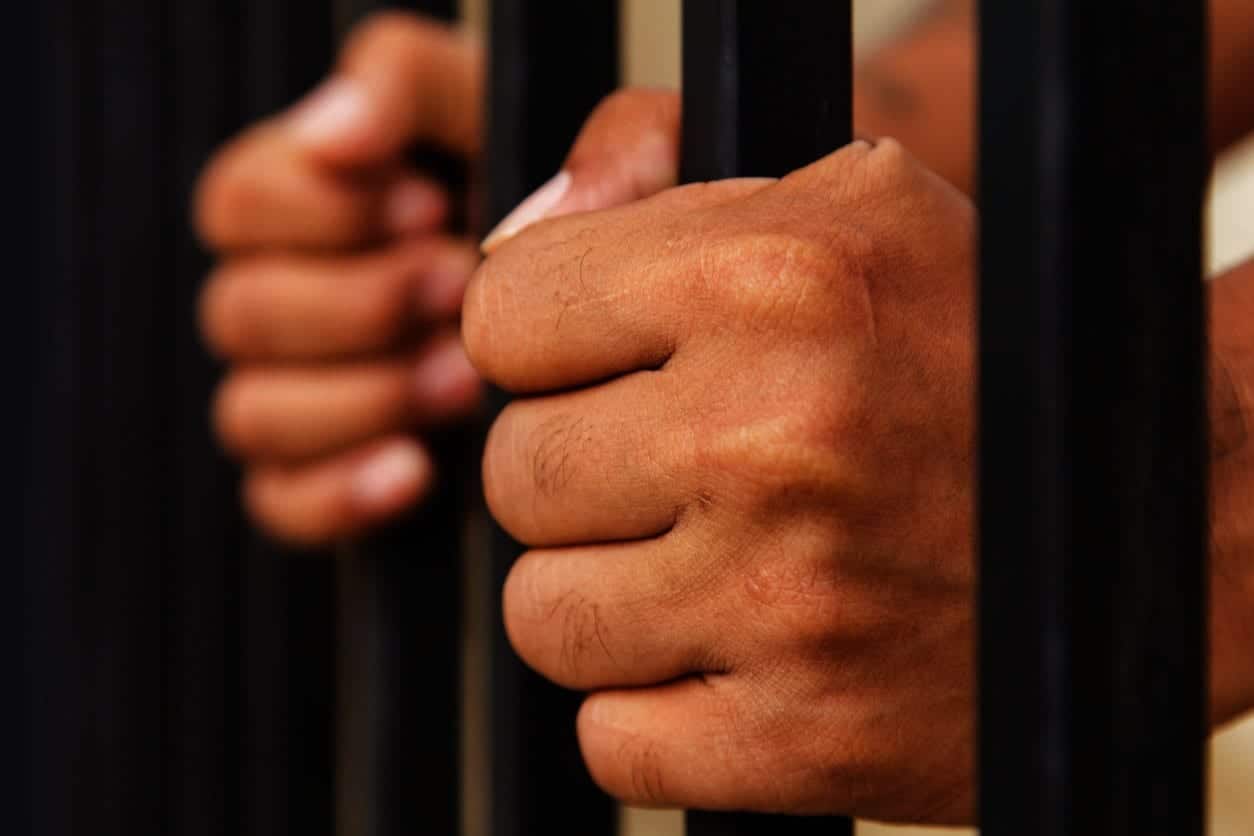
If you find yourself faced with a federal drug offense, you will have a difficult choice to make: stand trial or plead guilty.
The Government will make a plea proffer. Your attorney must listen and report that proffer to you.
Before the Sentencing Reform Act of 1984 was enacted, 15 percent of federal defendants elected to stand trial. By 2010, the percentage dropped to 3 percent.
As we reported here in 2011, nine out of ten federal cases today are resolved through guilty pleas, either negotiated or voluntarily entered into.
Guilty Pleas in Federal Drug Cases Forced
In 2013, Human Rights Watch reported that federal prosecutors “routinely threaten” drug defendants with “extraordinarily severe prison sentence” if they do not relinquish their right to a jury trial and plead guilty.
In a 126-page report titled, “An Offer You Can’t Refuse: How US Federal Prosecutors Force Drug Defendants to Plead Guilty,” HRW details how federal prosecutors across the country “extract guilty pleas from federal drug defendants by charging or threatening to charge them with offenses carrying harsh mandatory sentences and by seeking additional mandatory increases to those sentences. Prosecutors offer defendants a much lower sentence in exchange for pleading guilty. Since drug defendants rarely prevail at trial, it is not surprising that 97 percent of them decide to plead guilty.”
What is a Plea Bargain
A plea bargain is an agreement between the prosecution and a defendant to plead guilty or nolo contender (no contest) in exchange for the prosecution reducing either the number or type of charges involved (more commonly known as “charge bargaining) or agreeing to recommend a specific sentence to the court (more commonly known as sentence bargaining).
The American Bar Association believes that plea bargaining exist for “practical reasons.” The ABA lists those reasons as:
- Defendants can avoid the time and cost of defending themselves at trial, the risk of harsher punishment, and the publicity a trial could involve.
- The prosecution saves the time and expense of a lengthy trial.
- Both sides are spared the uncertainty of going to trial.
- The court system is saved the burden of conducting a trial on every crime charged.
Plea bargains are generally offered to defendants before they go to trial. The defendant is offered a lighter prison sentence most suitable to the prosecution in exchange for a guilty plea.
For example, if a defendant is charged with multiple counts of distribution of cocaine, he or she may be offered a 20-year sentence. The defendant can accept the plea bargain and serve the 20-year sentence, or reject the plea bargain and face trial.
In some cases, a plea bargain, as the ABA points out, is the most practical solution: evidence of guilt is overwhelming, the judge handling the case is more likely to impose a harsher sentence following a guilty verdict by a jury, and the Government has offered a deal that is fair and consistent with the evidence.
The bottom line is this: plea bargaining exists to avoid the time and resources required to bring a case to trial and the strain that lengthy trials impose on the court’s docket.
When a criminal defendant rejects a plea bargain and elects to stand trial, there can be serious consequences. The prosecution will most likely recommend a harsher sentence than the one proffered in the proposed plea agreement; and the sentencing judge, upon hearing the evidence presented at trial, is more likely to impose a much more severe sentence than he or she would have pursuant to a negotiated agreement.
The courts have uniformly recognized that a harsher sentence upon a defendant who rejects a plea bargain and stands trial is not per se unconstitutional.
Mandatory Minimums

Over half of defendants facing drug charges were convicted of crimes that have mandatory minimum sentences. These sentences are not light, and if you are convicted on federal drug charges, you will have to face the mandatory minimum consequences.
It must be considered that aggravating factors and criminal history pose serious risks for an enhanced sentence. A prosecutor who offers a plea bargain that is rejected will stress these factors in pushing for the most severe punishment possible.
This rule applies most in federal drug crimes that can result in decades of actual imprisonment.
Should You Take a Plea Bargain?
A plea bargain forces you to plead guilty. If you are innocent of the crimes that you are charged with, you have the right to defend yourself in court. But you will certainly have to fight for your innocence with a strong, serious defense strategy.
An attorney representing a criminal defendant can never recommend that a defendant who maintains his innocence accept a plea bargain.
The reality, however, is this: prosecutors bring criminal charges because they believe a defendant is guilty. They will threaten, and sometimes try to cajole, a defendant into pleading guilty. A rejected plea bargain spurs them to go after the maximum penalty.
When you are charged with a federal crime, it is important to immediately contact an experienced, successful federal defense lawyer. Call us today to begin building your defense as soon as possible.



